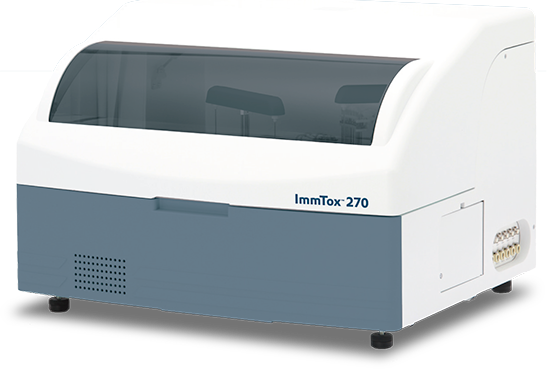An ethyl alcohol (ETOH) assay from Carolina Liquid Chemistries Corp. (CLC) has been categorized as moderately complex under the Clinical Laboratory Improvement Amendments of 1988 (CLIA) for use on the Abbott Laboratories ImmTox™ 270 clinical chemistry analyzer. As a result of this categorization, clinical laboratories with moderate complexity licensure and operating an ImmTox™ 270 may now perform this test, adding an essential drug assay to the already robust ImmTox™ 270 drug screening menu.
 Image Credit: Carolina Liquid Chemistries Corp.
Image Credit: Carolina Liquid Chemistries Corp.
This ethyl alcohol assay is intended for the quantitative determination of ethyl alcohol in human urine, serum or plasma. Alcohol testing may be performed in a wide variety of healthcare settings such as hospitals, emergency departments, urgent care, and practices which focus on substance abuse or pain management. Reference laboratories and centralized clinical laboratories that serve large group practices may also perform ethyl alcohol testing.
Ethyl alcohol can be found in regular alcoholic liquors, a variety of foods, drinks, candies, and medicinal preparations. When alcohol is ingested, it quickly spreads to the whole body and the majority (>90%) is metabolized in the liver and excreted with the remainder in urine and serum. Alcohol intoxication can lead to severe loss of alertness, stupor, coma, and death and frequently causes public safety issues. It can also lead to birth defects (fetal alcohol syndrome) (1-5).
Determination of alcohol concentration is commonly used for measuring legal impairment, forensic judgment, diagnosis/treatment of alcohol dependency, and detection of alcohol intoxication. Many different methods are available for determination of alcohol concentration (1, 2) in biological fluid.
This assay has previously been categorized as moderate complexity for use on other chemistry analyzers,
We’re pleased to now extend that benefit to laboratories running the Abbott ImmTox™ 270.”
Phil Shugart, CEO, says Carolina Liquid Chemistries